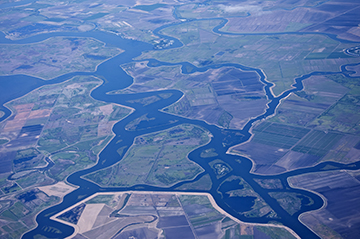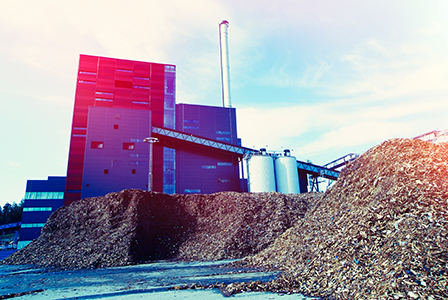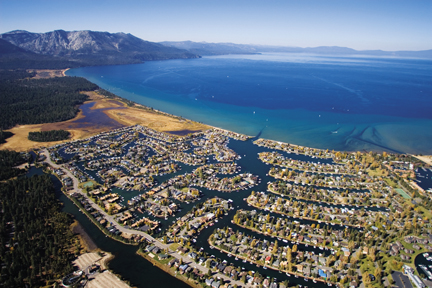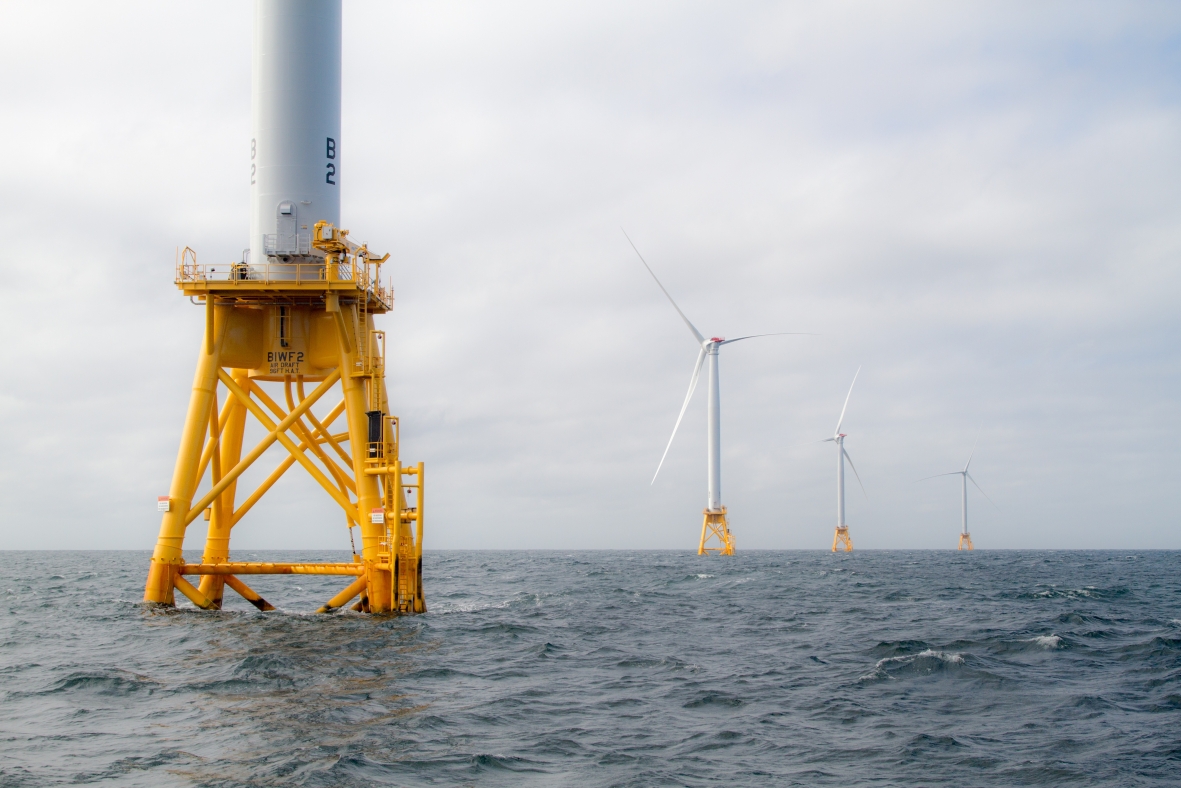
Voice Opposition to the Delta Tunnel Project
Stand For Clean Air and Against Incineration
Saving Lake Tahoe Keys from Toxic Herbicides
Save the Date: Summit Set for Nov. 7
California Offshore Wind Planning Resumes

At a recent meeting of Delta stakeholders, the Department of Water Resources (DWR) effectively dropped a bombshell on commonsense.
The department is determined to build a tunnel to divert water from the San Francisco Bay-Delta. At the stakeholder engagement committee associated with the Delta Conveyance Design and Construction Authority (DCA) on July 22, DWR officials announced that they would not be considering a commonsense alternative in the tunnel environmental impact report.
A commonsense alternative would include projects to make local water agencies less dependent on the Delta water system, but also avoid the perceived need to build a tunnel to divert water from the Delta system.
Sierra Club California has opposed construction of a tunnel. We have also embraced investing in local and regional measures—from conservation projects to efficiency projects to water recycling projects—that would substantially cut dependence on the Delta water system.
By rejecting the commonsense alternative—that is no tunnel and investment in local and regional conservation and efficiency projects—DWR has again locked itself into a tunnel that solves nothing and creates new problems.
At the stakeholder engagement meeting, DWR argued that a commonsense alternative doesn’t solve issues of sea-level rise or possible earthquake. We argue that neither does the tunnel. And the tunnel only makes the state water system even more vulnerable to other effects of climate change, including the demonstrated effects of drought.
The commonsense alternative would provide water to people around the state without forcing more than $11 billion of spending on an environmentally destructive tunnel that will provide no new water.
On Wednesday, August 26, the stakeholder engagement committee of the DCA will meet again. We need a strong showing of Sierra Club activists and tunnel opponents to testify during the public comment period and urge that the committee demand that DWR consider the commonsense alternative to the tunnel.
To learn more and prepare for that meeting, join Sierra Club California staff on August 24 for an online workshop about the commonsense alternative and how to give public comment about it.
Click here to register to attend the “Tell SEC: No Tunnel Alternative" workshop on Monday, Aug 24, 2020 at 6:00 PM.

Conventional biomass incineration is a prehistoric energy technology that burns trees to produce dirty electricity. California—a global leader in clean energy—is home to more than 20 of these antiquated emission belchers.
We need help from our members and supporters to effectively battle incineration and its climate and human health consequences. I have been virtually traveling all across the state to discuss the negative impacts of biomass incineration in California with chapter committees and allied organizations.
If your chapter committee would like to learn more about biomass incineration and join our campaign against it, contact me, Daniel Barad, at daniel.barad@sierraclub.org.
Biomass incineration is not renewable or clean. Even Trump’s Environmental Protection Agency is having trouble declaring burning trees for energy carbon neutral. Unfortunately, incineration remains an easy way to make cities’, farmers’ and foresters’ organic waste problems disappear.
Certainly, there are real concerns with appropriately dealing with biomass generated by the creation of defensible space or the removal of dead trees that could fall on homes or infrastructure. But—as a study we released last year highlights—there are alternatives to conventional biomass incineration.
Sierra Club California has been engaged at the legislature and state agencies to ensure that state leaders know that turning trees into pollution is not an acceptable waste disposal solution. Incineration should be the last, not the first, choice to dispose of woody biomass.
But there are many things local chapters can do to steer their communities toward cleaner disposal methods.
Sierra Club Zero Waste Committees can ensure their regions do not prop up old, polluting biomass incinerators to burn their local woody waste. Chapter Forest Committees can promote smart forest management and the lowest-impact uses for biomass. Sierra Club Energy Committees can keep biomass incinerators out of their communities’ renewable energy portfolios.
Contact me today to learn how you can join our campaign and/or invite me to present to your committee.

Lake Tahoe is a California treasure that draws visitors from around the world because of its clear water and mountain location.
For decades, though, finding ways to prevent degradation of the lake’s water clarity and quality has been nearly round-the-clock work for environmental activists.
Now, a 50-year-old private development on the lake composed of 30 man-made lagoons and two channels, called the Tahoe Keys, is considering toxic ways to rid itself of aquatic invasive weeds.
In 2018, the Tahoe Keys Property Owners Association (TKPOA) applied to the Lahontan Regional Water Quality Control Board (Lahontan) and the Tahoe Regional Planning Agency (TRPA) (Lead Agencies) to use herbicides to control the weeds in the Keys.
The Sierra Club Mother Lode Chapter’s Tahoe Group has urged that only non-herbicidal methods for aquatic weed control be employed. The draft environmental documents regarding weed removal identifies non-herbicidal methods of control environmentally superior.
Now you can weigh in to protect Tahoe Keys and the Lake from herbicides by signing a petition and commenting on the draft environmental documents before September 3.
Sierra Club California’s one-day summit will go virtual this year.
The summit will be on Saturday, November 7, from about 9 a.m. to 3 p.m. Watch this newsletter for details, including registration information.
The virtual summit will occur just after election day, so the panelists and speakers will be illuminating what happened and what we can do going forward to advance a clean environment, equity and social justice in California.
By Lauren Cullum

Photo by U.S. Department of Energy
California state agencies have resumed conversations about offshore wind development after running into conflicts with the Department of Defense (DoD).
Right now, the California Energy Commission (CEC) is accepting public comments on new potential areas for offshore wind development off the central coast. Go to the California Offshore Renewable Energy docket to see presentation slides and comments.
These new potential offshore wind sites were released earlier this year. The sites (identified as North and South area) cover approximately 240 square miles off the central coast, as well as a 90-square mile site located within the Monterey Bay National Marine Sanctuary.
Offshore wind developers and the state have identified the central coast as a location that presents offshore wind development potential because of the existence of onshore transmission infrastructure that is already equipped to deliver electricity. However, the DoD had stalled wind development there after finding the original “Call Areas” (Morro Bay and Diablo Canyon) to be incompatible with its military training activities.
These new potential sites have been brought up for discussion to explore new areas that wouldn’t interfere with the DoD’s operations.
Sierra Club California has been tracking this process and encouraging the agencies to advance developments in an environmentally responsible manner and preserve the ecological integrity of known biological hotspots such as National Marine Sanctuaries and Marine Protected Areas.
We anticipate that there will be more opportunities for public engagement in the fall.
Follow Us:
  |
Thank you for being a part of our work! Consider making a monthly donation. You may securely donate online or by sending a check to Sierra Club California at 909 12th Street, Suite 202, Sacramento, CA 95814.
